There’s a tragic irony in our relationship with coral reefs: we often damage what we claim to love. Tourism, while bringing visitors to marvel at these underwater wonders, through human greed, negligence, and unsustainable development can ultimately destroy the very reefs that attract tourists.
This is made worse by the prevalence of greenwashing, where terms like ‘eco-tourism’ and ‘blue economy’ are often misused to mask environmentally damaging practices.
While the economic benefits of coral reef protection and Marine Protected Area (MPA) creation, such as enhanced fish stocks and dive tourism, are frequently emphasized. The reality is that increased human presence in remote reef areas poses a significant threat to coral health. Improper or unsustainable tourism development often leads to untreated wastewater runoff, directly damaging reef ecosystems.
The balance between economic gain and genuine ecological preservation remains a critical and often neglected challenge.
Coral diseases have reached the remote coral reefs
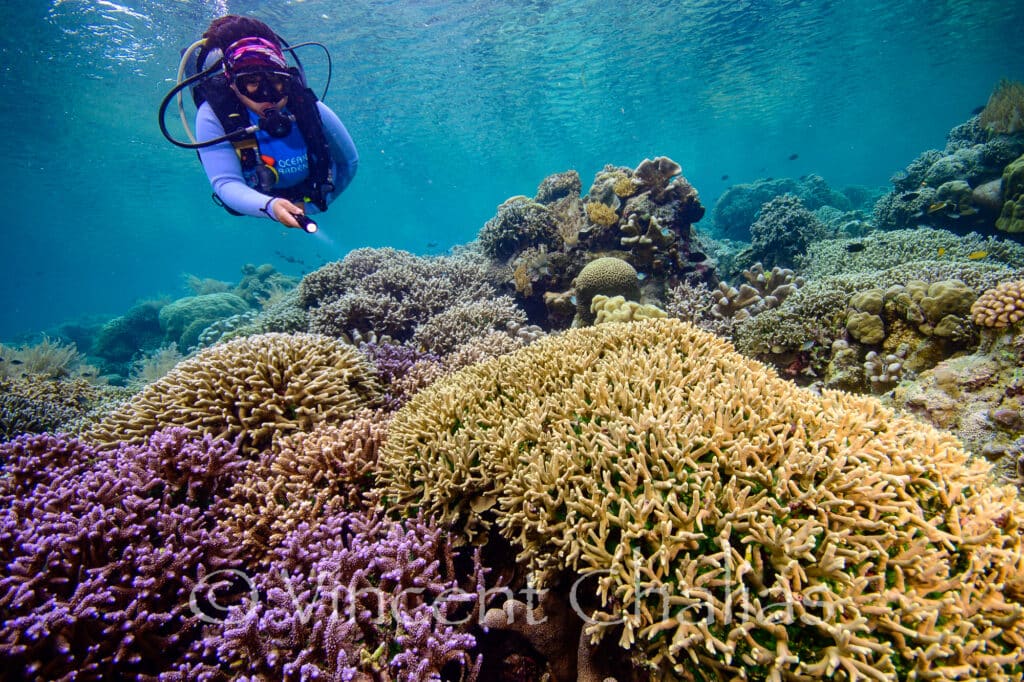
On recent trips to North East Indonesia, we were shocked to see an enormous amount of coral diseases. What the Caribbean started experiencing 50 years ago, is coming fast over Indonesia’s last few pristine reefs, and is striking with a vengeance.
Bacterial infections coral diseases, such as white plague, White band disease, and Black band disease, you name it, are now everywhere, even in the world’s most remote coral reefs.
Poop Days
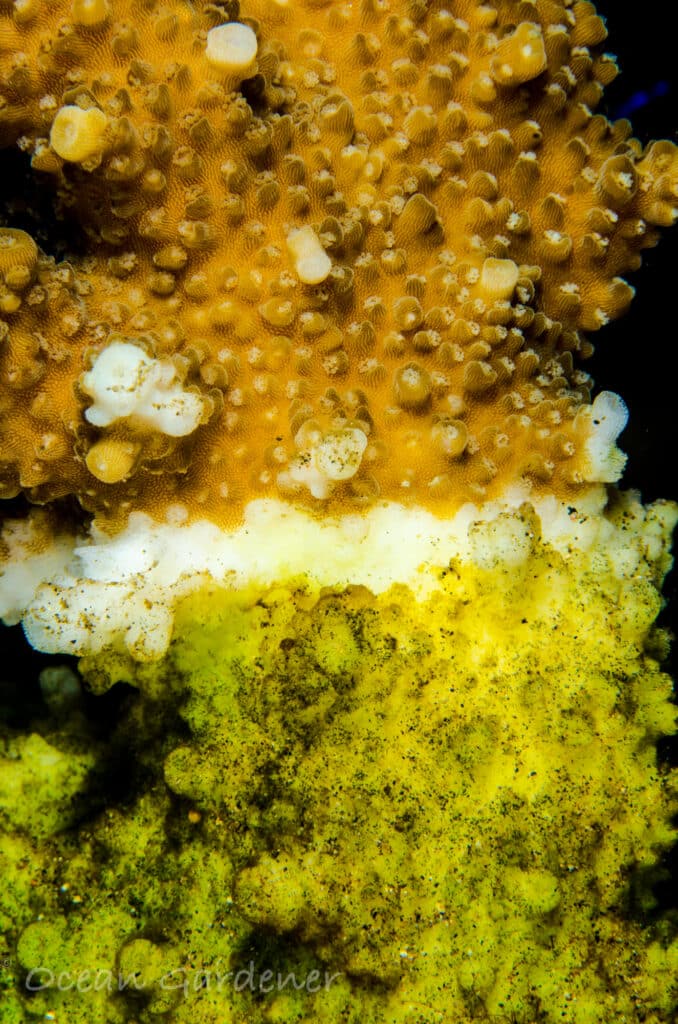
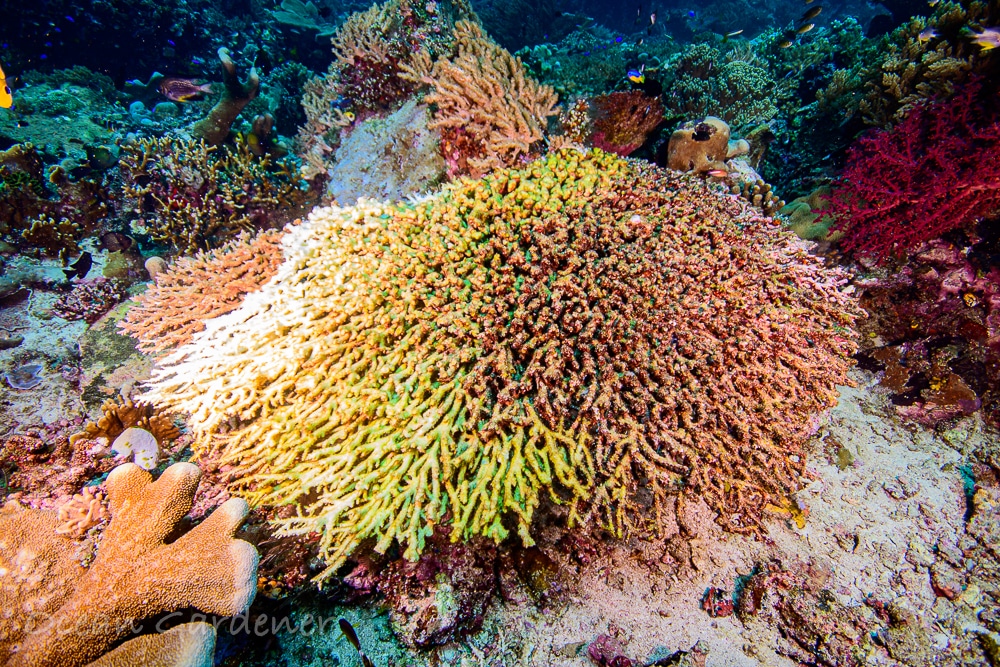
Governments trying to secure jobs and income for their growing population are promoting fast tourism development. Unfortunately, this development comes at a steep cost.
The ‘shitty’ truth is that sewage systems in remote places in Indonesia are simply nonexistent. Facilities to treat wastewater on boats are also nonexistent, so the wastewater from boats is directly dumped in the ocean around coral reefs. For small land-based homestays and resorts, wastewater is also a challenge. Most of these places are located on small, karstic limestone islands, with a porous calcium carbonate ground. It does not block or absorb this pollution and it leaks directly onto the reefs.
The number of ‘Poop Days’ are exploding, with more and more every day of the year. Poop days are calculated by assuming everybody poops at least once a day, so you take the number of people in an area per day x 1 to equally how many poops per day are bombing the reef.
Nutrient pollution
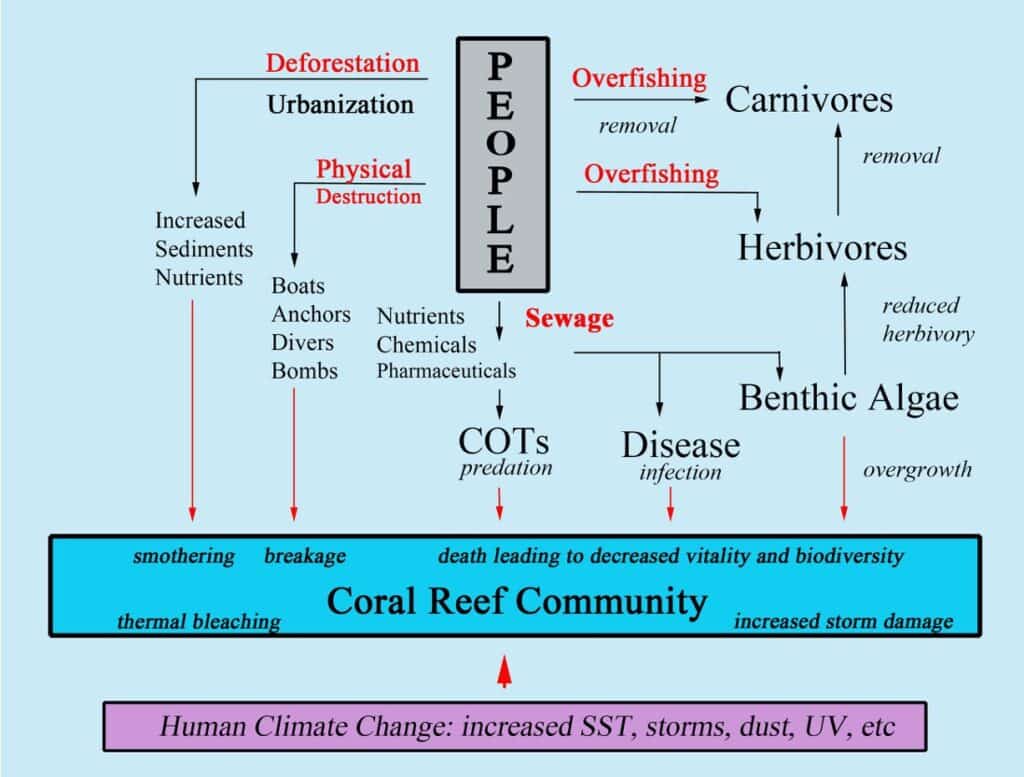
The input of human poops on the reef leads to higher nutrients on the reefs. But the real threat is the human digestive-associated bacteria in this waste that is disrupting the very important biochemical balance that supports coral health.
When corals become stressed and succumb to disease, they release mucus, acting as a potent attractant for Drupella snails. These snails then exacerbate the damage, creating a devastating chain reaction that is challenging to stop.
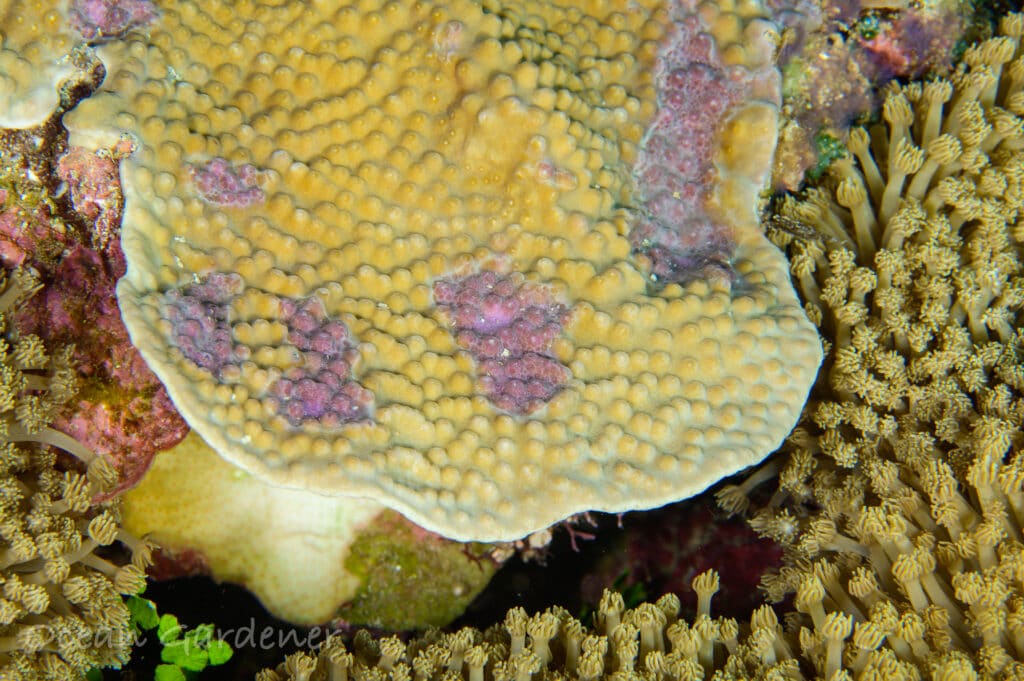
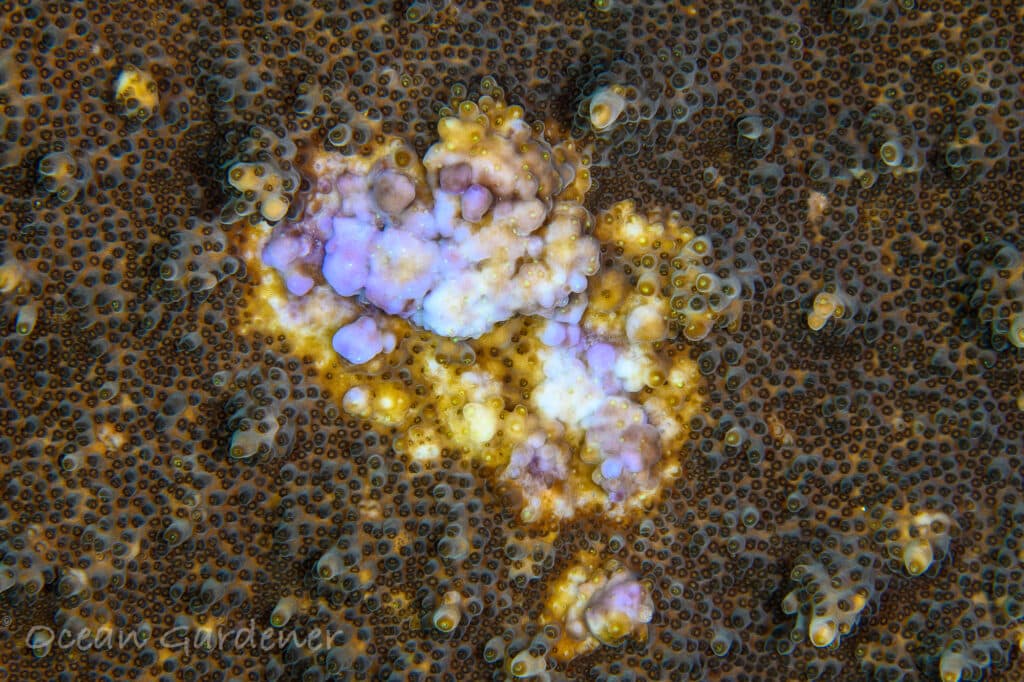
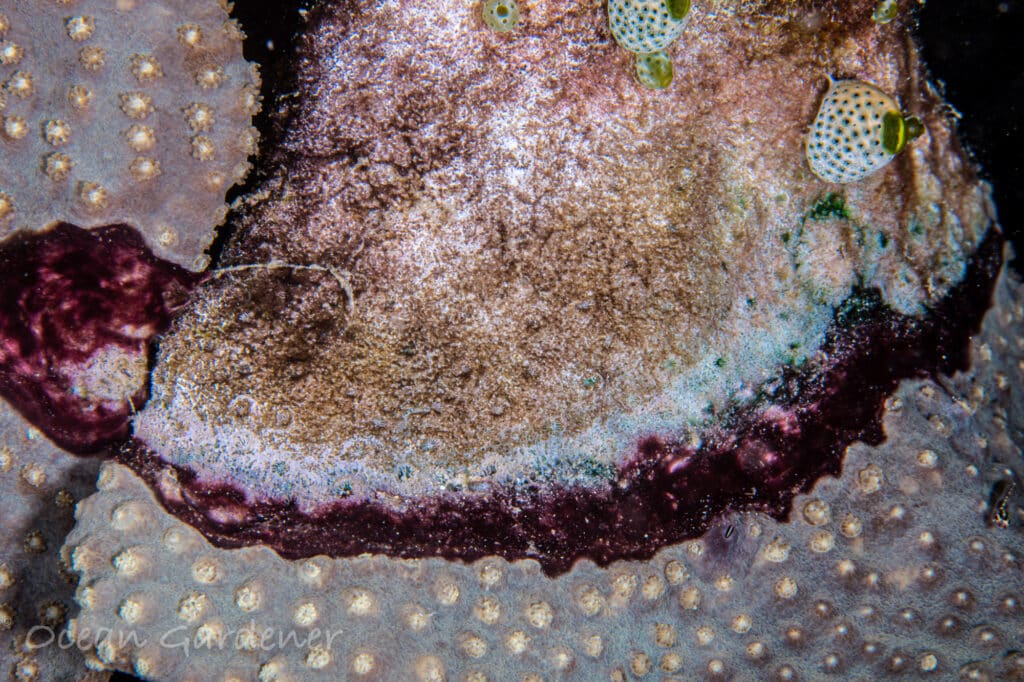
Who’s to blame?
The prioritization of economic growth at any cost. It poses a huge threat to environmental sustainability.
Even in developed countries like the UK, achieving comprehensive wastewater treatment is a long-term goal, with targets set for 2050. This reality underscores the immense challenges faced by developed countries. It is even more difficult for developing countries like Indonesia to address this issue.
Unsustainable tourism development, driven by the pursuit of rapid profits, often cuts costs by neglecting to build wastewater treatment facilities in homestays and hotels, or by discharging untreated wastewater from liveaboards.
What can you do to help
Responsible tourism development is essential, particularly in remote areas like Raja Ampat. Effective wastewater infrastructure and proper disposal must be mandated through local regulations. We should work alongside local communities, sharing knowledge about the detrimental effects of wastewater and the long-term benefits of reef conservation. Protecting these reefs ensures a sustainable tourism industry, providing income for future generations who depend on these resources.
As travelers, we can actively support eco-conscious accommodations by researching and utilizing eco-rating systems like Green Great. Furthermore, we can partner with local communities in sustainable tourism initiatives, fostering a shared commitment to long-term reef health.
For those seeking hands-on involvement, our coral restoration courses and coral nursery tours offer valuable training. Learn about coral biology and conservation, including coral disease identification, Drupella snail removal, and active reef restoration techniques.
Indonesia’s dive guides, often from local communities, are crucial reef sentinels. Support our Ocean Gardener sentinels program through donations to empower these guides to report coral diseases and reef decline. Your contribution directly aids reef protection and benefits the communities who depend on these ecosystems.